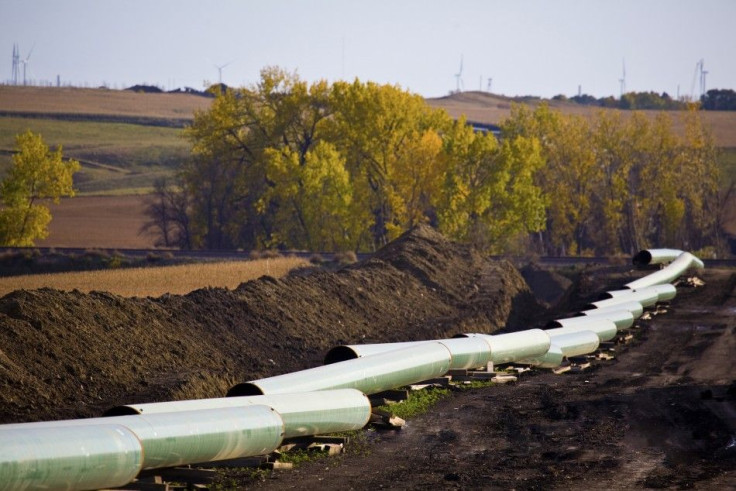Nebraska Landowners Sue Governor Over Keystone XL Pipeline Constitutionality

The national debate on Keystone XL enters the courtroom as Nebraska landowners sue their state over how the pipeline project was approved.
Three Nebraska landowners on Wednesday filed a lawsuit against their state's Department of Environmental Quality, treasurer, and governor, contending that the state law under which the Keystone XL pipeline is being handled violates the Nebraska constitution.
Under Nebraska law, TransCanada's Keystone XL pipeline may be approved only through a specially made commission.
The lawsuit filed in the state's Supreme Court, however, alleges that LB 1161, which was signed by Gov. Dave Heineman in April, grants the governor the power to approve the project by his own authority.
President Barack Obama early in the year scuttled the project when he did not approve the company's permit application, but on Feb. 27, the White House backed TransCanada's proposal to build the southern half, from Cushing, Okla., to the Texas coast, as a separate project.
The Nebraska Public Service Commission, created by the legislature in 2011 and added to the constitution, is responsible for governing all common carriers, which includes crude oil pipelines. The commission is tasked with establishing regulations and permits needed to build a pipeline in the state, said David Domina, the lawyer representing the three plaintiffs.
The construction of the pipeline entails using eminent domain to acquire land from landowners on which the pipeline can be built if a lease cannot be negotiated, and therein lies the rub.
Only the state legislature can wield the power of eminent domain when dealing with a common carrier, and cannot under state law delegate that duty to the governor. When the the legislature does delegate powers, it usually does so with directives on how that power should be used to ensure standards are maintained. But in passing LB 1161, the legislature did not do that, Domina said.
There are no standards, he said,
Domina added the law also did not go through judicial review before being signed.
In theory, the governor can approve the pipeline before Obama can approve the project, Domina said.
If so, TransCanada could seize land from Nebraska property owners under the authority of eminent domain, without even being sure it will have the presidential permit needed to build the pipeline over the U.S.-Canada border.
TransCanada's proposed pipeline has been the subject of a political battle between congressional Republicans and Democrats.
The off-again on-again project has been repeatedly debated on Capitol Hill, with Republicans voting to approve the project five times. Each time, the move has been blocked in the Democratic-majority Senate.
The pipeline would link U.S. refineries along the Gulf of Mexico with Canadian oil sands crude. Environmentalists say the pipeline risks damaging the country's farming lands and ecologically sensitive aquifer zones in Nebraska, while proponents say it is needed for the country's energy security.
Calls to Heineman's office for comment were not returned.
© Copyright IBTimes 2025. All rights reserved.





















